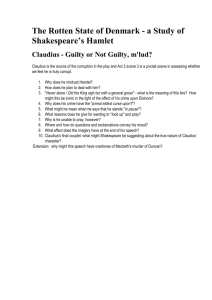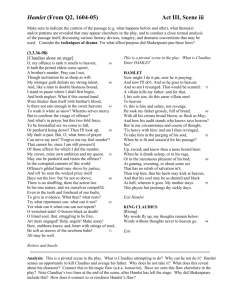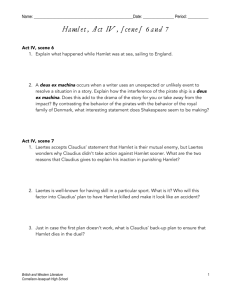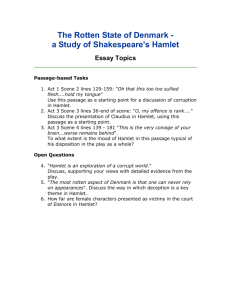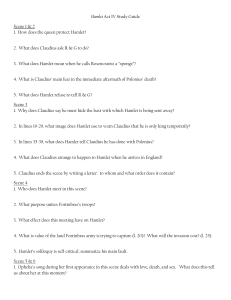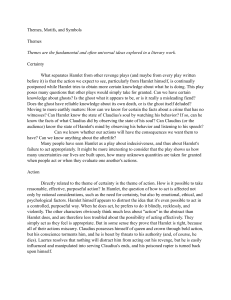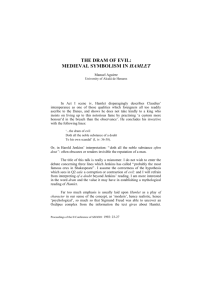Question: Explain why this excerpt is of great significance in the
advertisement
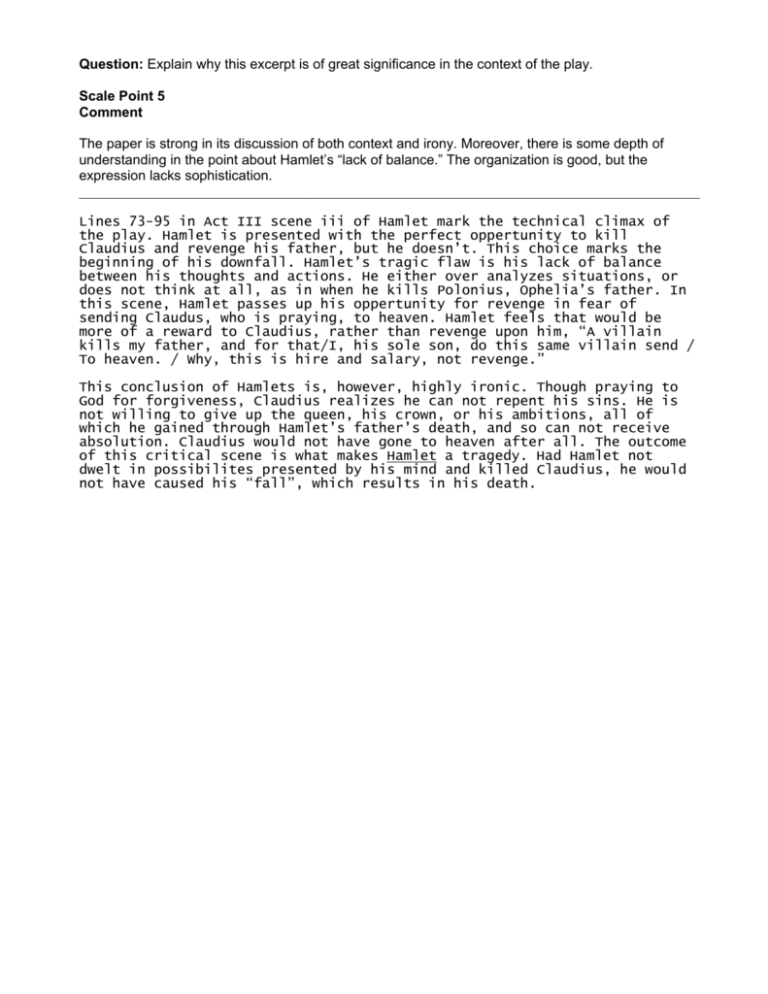
Question: Explain why this excerpt is of great significance in the context of the play. Scale Point 5 Comment The paper is strong in its discussion of both context and irony. Moreover, there is some depth of understanding in the point about Hamlet’s “lack of balance.” The organization is good, but the expression lacks sophistication. __________________________________________________________________________________________ Lines 73-95 in Act III scene iii of Hamlet mark the technical climax of the play. Hamlet is presented with the perfect oppertunity to kill Claudius and revenge his father, but he doesn’t. This choice marks the beginning of his downfall. Hamlet’s tragic flaw is his lack of balance between his thoughts and actions. He either over analyzes situations, or does not think at all, as in when he kills Polonius, Ophelia’s father. In this scene, Hamlet passes up his oppertunity for revenge in fear of sending Claudus, who is praying, to heaven. Hamlet feels that would be more of a reward to Claudius, rather than revenge upon him, “A villain kills my father, and for that/I, his sole son, do this same villain send / To heaven. / Why, this is hire and salary, not revenge.” This conclusion of Hamlets is, however, highly ironic. Though praying to God for forgiveness, Claudius realizes he can not repent his sins. He is not willing to give up the queen, his crown, or his ambitions, all of which he gained through Hamlet’s father’s death, and so can not receive absolution. Claudius would not have gone to heaven after all. The outcome of this critical scene is what makes Hamlet a tragedy. Had Hamlet not dwelt in possibilites presented by his mind and killed Claudius, he would not have caused his “fall”, which results in his death.


